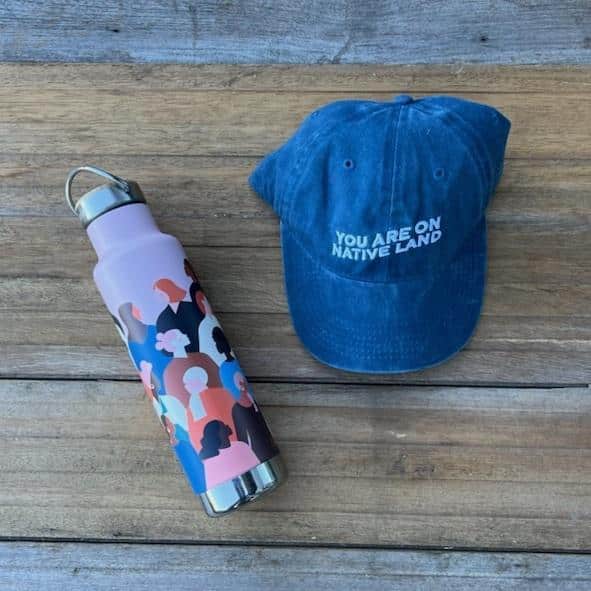Indigenous Peoples
What can we learn from Indigenous land stewardship?
Introduction
As climate change intensifies, Indigenous communities bear a disproportionate burden of its impacts. These resilient peoples, the original inhabitants of their lands, have long lived in harmony with the Earth. Yet, the legacy of colonization has forcibly displaced many from their ancestral homes. Despite these ongoing challenges, Indigenous communities remain at the forefront of environmental preservation, offering invaluable knowledge and solutions for addressing the climate crisis.
Indigenous peoples are spread across the globe, speaking over 4,000 distinct languages and representing more than 5,000 unique cultures. Although rich in heritage, they comprise only six percent of the global population and continue to face systemic discrimination. This deeply restricts their ability to practice cultural traditions, which are integral to their identity and wellbeing.

Traditional Ecological Knowledge (TEK) in Practice
Indigenous communities rely on Traditional Ecological Knowledge (TEK) to live in balance with nature. TEK emphasizes community-based conservation, where each individual shares responsibility for respecting and protecting the environment. Practices such as rotational farming, selective harvesting, and traditional hunting help prevent the depletion of natural resources. Another striking example is the use of controlled burns, which reduce wildfire risks while regenerating ecosystems. This practice, deeply rooted in Indigenous wisdom, is gaining recognition as an effective strategy for managing the wildfires increasingly fueled by climate change. TEK methods are shaped by centuries of experience, honed through living in harmony with diverse ecosystems.
The Cultural Significance of Land
For Indigenous communities, land is far more than a resource—it is the foundation of cultural and spiritual identity. The loss of land disrupts not only food sources and ecosystems but also the deep connection between people and their heritage. Land is integral to ceremonies, storytelling, and the transmission of knowledge from one generation to the next. Losing access to their territories threatens the survival of Indigenous languages, traditions, and social structures.
Despite their invaluable contributions, Indigenous voices and knowledge are often marginalized. Industries such as oil and gas continue to endanger Indigenous lands. Hydraulic fracturing, or fracking, involves the use of mini-earthquakes to extract fossil fuels, causing widespread environmental harm, including seismic activity, greenhouse gas emissions, and noise pollution.
Indigenous peoples are bearing the brunt of the socio-economic impacts of climate change. Environmental disasters are causing them to lose access to their lands, disrupting food sources, infrastructure, political power, and ecosystems. This separation from their territories threatens Indigenous identity, which is deeply tied to the land, and undermines the traditional knowledge that has been passed down for generations.
Global Indigenous Movements
Indigenous communities are at the forefront of efforts to protect their lands through the passage of Rights of Nature laws. In 2017, the Ponca Nation became the first to pass such a law, banning fracking on their lands. They extended these protections in 2022, granting legal rights to two rivers. Similarly, the Dakota Access Pipeline case, which threatened the Sioux reservation, has become a landmark example of Indigenous-led resistance, though the legal battle is ongoing.
Across the globe, Indigenous communities are uniting to defend their rights and lands. Movements like the Indigenous Environmental Network (IEN) bring together Indigenous voices worldwide to combat environmental exploitation and climate change. These movements champion sustainable practices and Indigenous sovereignty, raising global awareness of the urgent need for environmental justice.
The Path Forward
Robin Wall Kimmerer, author of Braiding Sweetgrass, emphasizes the importance of living in reciprocity with the land, with each other, and with all living beings—an essential principle in Indigenous practice. Uplifting Indigenous voices is crucial, especially as they are often marginalized or suppressed by governmental systems. Encouragingly, some positive steps are being made. For example, the United Nations Declaration on the Rights of Indigenous Peoples (UNDRIP) affirms Indigenous peoples’ rights to maintain their lands, cultures, and traditions. This international framework serves as a powerful tool in supporting Indigenous communities as they resist threats to their sovereignty and advocate for environmental protection.
Organizations like Pachamama work to support Indigenous land rights by offering legal assistance, helping communities secure their rightful territories. Additionally, our partner, the Climate Stories Project (CSP), amplifies Indigenous voices by sharing personal oral histories that highlight the human connection to climate change, making the conversation more immediate and impactful.
“We are not merely the leaders of tomorrow; rather, we are the leaders of today,” said Kalikoonāmaukūpuna Kalāhiki, a passionate advocate for environmental justice and Indigenous sovereignty. Across Indigenous communities, young activists are stepping up to lead the charge against climate change. Their efforts reflect their deep connection to the land and resilience in the face of environmental threats. As allies, we have the privilege and responsibility to stand alongside these leaders, supporting their fight to protect ancestral knowledge and secure the future.
EXPAND YOUR KNOWLEDGE
Exploring Indigenous Knowledge and Climate Change: Key Resources
For a deeper understanding of how Indigenous communities are addressing climate change, these resources highlight the critical role of Indigenous peoples in climate justice and sustainability.
CHALLENGES
Recently, colleges and universities in the United States have begun exploring innovative ways to acknowledge tribal lands, such as flying Indigenous nations’ flags on campus or offering free tuition to Native American students. National initiatives like the LandBack movement are also gaining momentum, advocating for reforms and reparations.
It is crucial for organizations and governments to acknowledge that the land they occupy originally belonged to Indigenous peoples. Follow the steps below to engage with this topic and take action:
Share your takeaways on Instagram Stories. If possible, include a link to the video to encourage others to watch and learn more.
The Dakota Access Pipeline has a complex legal history, spanning from 2015 to the present. Although the pipeline has faced temporary shutdowns, federal courts have consistently blocked efforts for a permanent closure. Corporations involved in the project have been able to submit impact statements that downplay the environmental and social consequences of the pipeline, allowing operations to continue.
Take action by researching and raising awareness about Indigenous land ownership, sovereignty, or other human rights violations. Follow the steps below to complete this challenge:
Organizations worldwide are working to protect Indigenous lands and preserve cultural heritage. Our partner, Pachamama Alliance, empowers the Indigenous peoples of the Amazon rainforest to safeguard their land and rights. If Not Us Then Who is building Indigenous networks and raising awareness through storytelling. What valuable lessons can we learn from these cultures and their ways of life?
Storytelling is a vital tradition within many Indigenous communities, preserving history, culture, and knowledge. Follow the steps below to engage with this tradition:
PRIZES
Up to 10 Greener and 10 Greenest outstanding submissions will be selected as winners.

Each Greener Winner will receive:

Each Greenest Winner will receive: